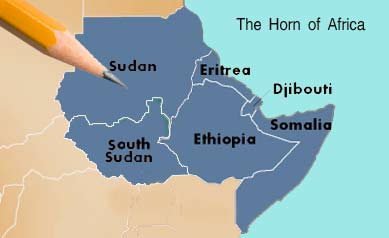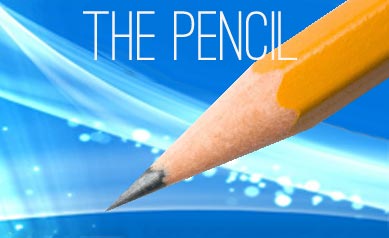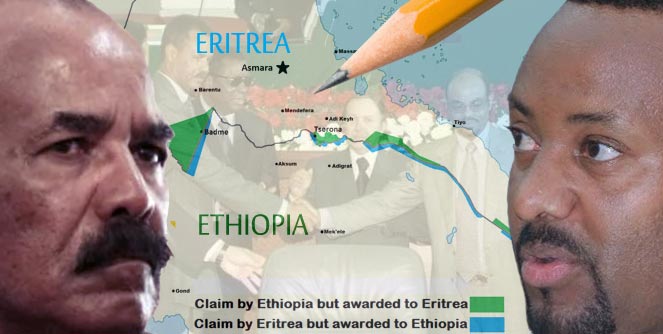A Call To The Moderates of The Horn Of Africa (Archived)

This editorial first appeared on Oct 22, 2003, and again on Sep 10, 2014. We are bringing it up today to remind the pretentious perpetual hawks who are covered with dove feathers, about our view 16 years ago, and today, about peaceful coexistence. We think the topic is more relevant to our current situation and related debates. The responses we received for our call was published on Nov 4, 2003. Please check here.
There is an old Eritreans saying: when the leg is hurt, the eye weeps. A similar proverb exists in Ethiopia. What is true for individuals is true for neighboring nations. When Somalia is hurting, our region is crying. When Sudan catches a cold, Ethiopia gets a fever. When Djibouti is stabbed, Eritrea bleeds. When Yemen is choked, the Red Sea dries up. Sometimes we take turns, some times we do it simultaneously: our region has been crying and bleeding for too long. Our governments have failed us. This is our call, ordinary Eritreans, to like-minded citizens of the horn in general and Ethiopians, specifically, to come together with us to help improve the situation in our region.
And what exactly is the “situation in our region”? In Somalia, we have chaos and social strife; in Sudan, we have seen a civil war rage for four decades; in Ethiopia, we have yet to see a peaceful transition of power; and in Eritrea, we have a “transitional government” that has been in power for 12 years and gives every indication that it wants to rule forever. Since the 1960s, at least two (and as many as four) of these nations have been in one kind of war or another. Though our common psyche is built around irrelevant feel-good myths (pride in being born-fighters with a heritage of a civilization thousands of years old, etc), we are among the most underdeveloped regions of the world. We seem to despise life; our favorite pastime is killing each other. Our region has become a perfect example of failure. Rarely is it mentioned apart from headline news related to famine, drought, wars and now HIV disease. We have become boastful people with nothing to show for our boasting. We have become a nuisance to the world community that we think is responsible to fix anything we break. We have become professional beggar-nations: beggars who do not know gratitude. Thankless beggars who dream and plan on how to waste the resources of charities. We have become nations whose youth are hopeless and hapless and could only dream on fleeing their countries. We are suffering from a high rise in child prostitution. In short, our mirror reflects a very bad image. We have to come to terms with this reality.
On virtually every social misery index—disease, malnutrition, mortality, poverty, illiteracy—we continue to record, year after year, depressing ranks. And, year after year, the governments that preside over this misery refuse to take responsibility and place the blame on everybody else but themselves. They blame the weather, they blame history, they blame the neighboring government, they blame the white man. But they never take responsibility for their failure. On the rare occasions when they take responsibility for their actions, there is no corresponding accountability: a minister is shuffled, another one arrested, but the head of the government remains untouched—until he is overthrown by another strongman. And the cycle is repeated.
Purpose: To Create A New Reality
Our citizen-to-citizen initiative is not meant to contradict or support the government-to-government relationship between these nations. Why? Because for years, these governments have made it abundantly clear that they care not a whit about what their citizens have to say. They have told the people that they are irrelevant. They have rejected their people’s cries for peace; they have rejected their people’s appeal to be heard and to be respected; they have turned a deaf ear to their citizens’ demands to exercise their freedom. The governments have made it abundantly clear that their only purpose is to retain power at all costs. The only time they change course is not when they are swayed by public opinion but when they face a power even stronger than them. Even then, they change course only if they perceive that they will lose power if they don’t—and not because they believe it is in the national interest to change. And if they move in the right direction, it is often because a more powerful force—the American government for example—gives them a credible threat that if they don’t, they risk losing power. The governments have repeatedly redefined a citizen to mean someone who agrees with them. A full citizen is someone who agrees with them fully (or chooses to remain silent when he doesn’t agree); a half-citizen is someone who agrees with them half-the-time; a non-citizen is someone who disagrees with them all the time.
With respect to the current dispute about the border dispute, it is following a path we feared and expressed a scenario for in our last editorial (The Pencil October 5, 03): Eritrea is saying the deal is “final and binding” and will have no dialogue; and the Ethiopian government is saying the deal is “null and void” and wants dialogue. Once again, neither government will do anything to gauge what the public opinion is; they will pursue a path that they consider will elongate their power and will not change it, unless an even stronger force compels them to do so. Both governments understand this which is why their appeal is always directed to the strong powers. If no credible threat of force is forthcoming, both governments will be content to live with the status quo—even it this means considerable pain and suffering to the people—for years and even decades as long as this advances their sole interest: to stay in power. It is inconceivable that either government would give up power even if it was certain that doing so would be in the long-term interest of the nation.
This is our reality and it will not be changed by petitions and counter-petitions; by pronouncements and resolutions. What we need to do is to create a new reality. We know the formula for failure; what we want to do is to take baby steps–a citizen-to-citizen initiative—which will, at the very least, add an unknown variable to the formula. We are taking a jump; we are hoping our brothers in Ethiopia will provide the net.
A Modest Proposal
We are hereby offering this forum, awate.com, to serve our region in that respect. What we have in mind is an effort to mobilize the voices of freedom and democracy for the sole purpose of alleviating the miserable conditions in our region, as well as to promote prosperous and dignified living conditions for our people. This is a dream worth living for; it is a noble cause worth the risk. What we envision is a simple proposal, with humble beginnings but a great potential: our premise is that there is absolutely no reason why forums for information exchange should be monologues; we need to expose one another to each other’s dreams, hopes, fears, and concerns. The dialogue we have in mind can begin with sharing ideas in the form of articles, debates and researches. This will inevitably lead us to organizing workshops and seminars, developing joint declarations and, ultimately, an action plan and task forces to execute our vision. We invite the moderate citizens of the whole region of the Horn of Africa to help us build an initial bridge that can be an example for the rest of the region. In this effort, we will break taboos, shun hypocrisy and promote civility. We will expose ourselves, from the perspective of outsiders, as naked as they see us, and we will refrain from self-centered, egoist and narcissist appraisal of ourselves.
Our Fears, Our Hopes
Even during the era of the liberation struggle while fighting Ethiopian armies, Eritreans never hated Ethiopians. Our struggle was focused and concentrated on the unjust Ethiopian regimes. We never promoted anti-people propaganda and we never instilled the psychology of mass-hate against any people. It is an irony that, after liberation, the PFDJ introduced the politics of hate: we now hate Amhara, Tigray, Sudan, Eskimos etc. It is during the last ten years that Sudan-bashing, Ethiopia-bashing and Tigray-bashing was introduced in our political culture. We are certain this hate will be eradicated once the tree that is carrying it, the PFDJ tree, is uprooted.
Though the PFDJ official hate-meter doesn’t allow people to express it, Eritreans have a special affection for many things Ethiopian: the lush landscape; the beautiful and rich water resources; the dignified manners and social etiquette; the cuisine; the romantic songs; the dance. We were proud of Abebe Bekila; we are proud of Haile Gebreselasse, Derartu Tulu, Fatuma Roba. As Africans, only the most narrow-minded and the history revisionists amongst us don’t take pride in Ethiopia’s resistance of colonizing forces. We take pride in Adwa. We take pride in a people who refused to be subjugated and stayed free for thousands of years.
But there are many things we don’t like about some Ethiopians.
We do not like your obsession of talking about Eritrea as if it were a piece of real estate without people who decide their own fate. We are insulted by your belittling of the struggle that we as a people waged. We are stunned by your inability to understand our right to self-determination and your revision of our yearning to be an independent country. We are apprehensive of Ethiopians when they equate Eritrea to (and define it by) the extremists among us. We are saddened when we see supposedly enlightened intellectuals preaching hate and violence. We hate the Ethiopian obsession with an outlet to the sea even if it means throwing the region into yet another endless war and pushing it to the abyss. We do not understand why Ethiopians, who have a strong need to be united and fear fragmentation, cannot understand that we Eritreans see ourselves as one unit with diverse population.
We are apprehensive that they don’t recognize that the Eritrean struggle, among other reasons, was a result of a betrayal by Ethiopia. It is a result of Ethiopia always wanting to protect its interest by sowing seeds of discord among Eritrean social forces. Its relentless efforts to ally and pacify itself to one Eritrean segment while isolating and ostracizing the other. This is a tactic perfected by Haile Sellasie and currently being pursued by the EPRDF. It is our deep scars when successive Ethiopian governments dehumanized us. We do not understand how Ethiopians who have vivid memories of the injustices and atrocities of Fascist Italians cannot understand the Eritrean pain suffered in the hands of Ethiopian forces in in Ad Ibrahim, Ona, Besekdira, Hergigo, Massawa, Weki Debba, etc. We do not understand how Ethiopians, who jealously guard their sovereignty, cannot appreciate that we Eritreans, like them, have a need to jealously guard the sovereignty of such a young nation, for which we gave so much to achieve. We, a small nation, fear a big country, Ethiopia, but not another big country, Sudan, because only Ethiopia seems to have territorial ambitions towards us.
Moderating Influences
Are the views expressed by our governments the views of the common Eritrean and Ethiopian? The tools used to measure that—public opinion polls, free and fair elections—are not available to us and thus, we cannot be sure. From anecdotes, what we know is that Ethiopians have strongly held views about Eritrea’s 1993 referendum, about the Port of Assab, about the dual-citizenship and other “privileges” Eritreans enjoyed in Ethiopia post-1993; about Badme; about currency exchanges, about the 98-00 war and, now, about the decision of the border commission. Eritreans have strongly held views about Eritrea’s 1993 referendum, about their sovereignty which includes all of Eritrea’s territories; about deportations; about reparations for the 30 year war; about the 98-00 war; about the Ethiopian opposition’s declarations and, now, Ethiopia’s decision to nullify the Boundary Commission.
Whether the governments are perfectly in sync with the sentiments of the people or not does not matter because, in the end, being illegitimate governments, they will only pursue policies not on the basis of public opinion (which is coincidental at best) but on the basis on what will elongate their grip on power. If that means pursuing highly polarized and extremist views, they will do so. And, when they do, they will utilize their monopoly on the media and their skillful ability to stroke people’s fears, to pursue their goals.
What Eritrea and Ethiopia (and for matter, the entire Horn) need is a moderating influence and agents of change. As ordinary citizens, we can formulate solutions to the problems that bedevil our countries, through dialogue and in an environment of mutual respect, without being encumbered with the game of politics—which is all about getting power and keeping power. We can discuss the thorny issues and present our people not just another list of problems, but actual solutions to their problems.
Future Eritrea & Future Ethiopia: Eritrea’s armed struggle to liberate Eritrea became synonymous with a struggle to secede from Ethiopia. In point of fact, the struggle was to return power to the people so they can exercise their right to self-determination. It so happened that we determined to secede. We did so, through a free and fair election in a referendum, in 1993. As long as we all recognize that the people of the two nations are the sovereign powers and ultimate power rests with them, it is entirely possible that the Eritrean people can enter into all sorts of long-term relationship arrangements with their Ethiopian brothers and sisters. Our goal should not be to wage a propaganda or actual war to guarantee the precise location of a border marker; our goal should be to design a political and economic system that renders the border marker, just like European borders, economically irrelevant. The goal should not be an obsession with Asab; our goal should be on how to transform Asab to a prospering port where the national flag will be secondary to the insignias and logos of the merchants. Our goal should be to exchange ideas on how to maximize our two nations’ economies of scale; how to develop our garment industry, our fisheries, our salt mines, our hydroelectric power, our art and culture.
We will have opposition. There are Eritreans and Ethiopians whose self-worth is elevated only when they are able to mock and ridicule the other. There are Eritreans who look at the miserable status of our country and then console themselves by comparing themselves with Ethiopia’s marginally worse stats. And vice versa. There are Eritreans with so much damaged self-esteem that they only feel better after watching Eritrean war documentaries and counting dead bodies and mangled steel. There are Ethiopians who believe that Ethiopia was great when it was ruled by warriors and that to regain its greatness, it must adopt the warrior cult hood. We must treat these people as aberrations, and not the norm. They are as representative of the general populace as a mental patient would be.
Right now, on both sides, the loudest voices are the citizen’s equivalent of a mental patient: they are loud, they are incoherent, they are foul and they are prone to violence. The voices of moderation need to reclaim back our land and bring relief to our people. We need partners who would work for peace; we know you are out there…will you join us?
Related reading:
Link: For responses we received for our call, check here.
Link: A Call For Sober Dialogue (The Pencil October 5, 2003)



Awate Forum